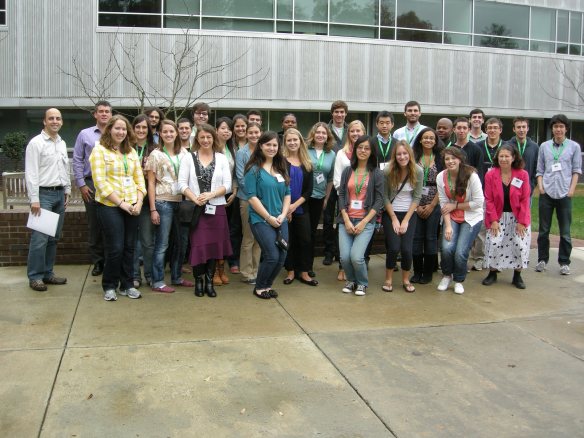This blog entry was written by James Anderson, undergraduate student double majoring in statistics-mathematics and economics from the University of Connecticut.
This undergraduate workshop was notably different from my previous experience, though in no way inferior. In fact, I would argue the content of this workshop was better for my current position. Massive datasets are surprisingly common and the topics covered included astronomy, high dimension regression, climate change, and image rescaling. In these contexts, we mainly discussed how to manage large datasets without crashing an individual computer.
The other aspect of the workshop, which I really enjoyed, was discussion panels. The students got a chance to talk to people working in academia and industry, as well as graduate students and postdocs. The professionals talked about their respective occupations and how they got to where they are, which was very interesting. On the other hand, the younger group talked about their transitions out of their respective undergraduate programs. This was particularly useful as I will be going through this phase over the next few months. One thing I was once more impressed with was SAMSI’s concern for the attendees. The presenters were happy to go into great detail about their presentations and field any general discipline related questions they could with interested attendees (the presentations had to be kept pretty short). This really impressed me; it didn’t matter if it was in the context of a presentation or not, the mentality seemed to be that the workshop was happening all the time. There was a great opportunity during panels or breaks to ask questions and get information that was quite personalized and would have been hard to find in another way. The workshop gave me a lot of information and resources that will be valuable going forward.

